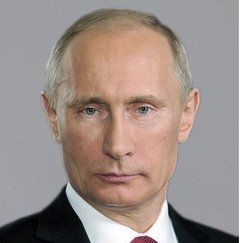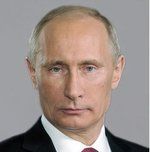The Russian ruble plunges further as economic sanctions bite harder and investors despair at the fiscal impasse the country has created for itself. The ruble fell another 1% today to 38.72 per dollar, its lowest level since 1998, when the currency was restructured.
The two economic powerhouses – the United States and European Union – tightened sanctions against Russia last week in response to evidence suggesting Russian troops and military equipment had crossed the border into Ukraine to aid the separatist rebels. Russia denies helping the rebels.
Alexei Kudrin, Russia’s ex-finance minister, said today that the US/EU additional sanctions will have a physical impact on his country’s economy.
Mr. Kudrin said:
“The sanctions that have been imposed are going to have an effect for the next one or two years because they have limited opportunities for investment in this uncertain environment.”
Mr. Kudrin believes in reforms and is a strong advocate of fiscal discipline. He has become one of the very few lone voices among Russia’s elite to criticize President Vladimir Putin’s policy in dealing with the repercussions of the Ukraine crisis.
Reuters Moscow correspondent wrote “…some observers called a mood of panic on the currency market.”
Economy may shrink in 2015
At a business conference today, Mr. Kudrin predicted the Russian economy would stagnate this year and shrink in 2015, contrasting with official forecasts of 0.5% GDP expansion in 2014 and 1% in 2015.
Several major state-owned and independent banks and energy companies in Russia have been excluded from raising long-term funds in the European Union capital markets. Most military deals have been banned and export restrictions tightened.

The EU/US have extended the list of individuals in Putin’s inner-circle who will not be granted visitor visas or be able to carry out banking transactions abroad.
The ruble has also fallen because the Russian central bank is supporting the currency much less now. In August, the Central Bank of Russia (Банк Росси́и) said it would allow the ruble to trade within a wider band. It last intervened to prop up the ruble by selling dollars and euros in May 2014.
Falling oil prices also pushed down the currency’s value.
Putin’s ratings still high
Despite the economic woes, Vladimir Putin still enjoys a much higher domestic approval rating than any other leader of a major economy.
The Kremlin has pledged to support businesses that were affected by sanctions. Anton Siluanov, Finance Minister, yesterday said his government may use money from the state pension fund if it has to.
Investors are worried about a tit-for-tat response from Russia to the extended EU/US sanctions. According to local media, Russia is preparing retaliatory import bans.
Uncertainty is fueling a growing capital flight problem that started earlier this year. Mr. Kudrin believes that at least $110 billion will have left the country in 2014, compared to $61 billion last year. Other economists say the figure will be much higher.
Morgan Stanley estimates that Russian companies’ debt redemptions will nearly double to $47 billion in Q4 2014, from $26 billion in Q3.

